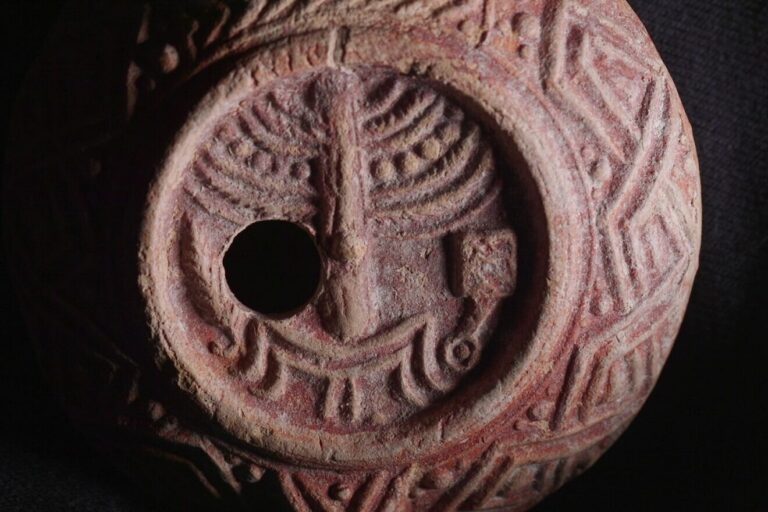 On Monday, at 2:28 p.m. local time (2:28 a.m. Eastern time), Rabbi Ilan Rossanis was in the Yibin airport, in Southwestern China’s Sichuan Province, about to board his flight to Beijing. The veteran mashgiach, who has worked for STAR-K CERTIFICATION for eight years, had just completed an inspection of China Jianzhong Nuclear Fuel Corporation’s Food Division, manufacturer of STAR-K certified eucalyptus oil, citral, and other products commonly found in kosher certified foods.
On Monday, at 2:28 p.m. local time (2:28 a.m. Eastern time), Rabbi Ilan Rossanis was in the Yibin airport, in Southwestern China’s Sichuan Province, about to board his flight to Beijing. The veteran mashgiach, who has worked for STAR-K CERTIFICATION for eight years, had just completed an inspection of China Jianzhong Nuclear Fuel Corporation’s Food Division, manufacturer of STAR-K certified eucalyptus oil, citral, and other products commonly found in kosher certified foods.
As he was attempting to pack his laptop in his carry-on, the entire airport terminal began shaking uncontrollably. In the next two or three minutes, a plethora of passengers and terminal workers were evacuated. Only after the building stopped trembling, within another few minutes, were they allowed to return. Although, Boruch Hashem, there were no casualties or damage to the airport buildings and infrastructure, the rabbi’s flight was cancelled, leaving him to take a much longer bus ride to Beijing.
Rabbi Rossanis was about 300 km, or about 185 miles, from the epicenter of China’s worst earthquake in three decades, which left more than 12,000 dead, 26,000 injured, and 18,000 buried in rubble. The country’s last devastating natural disaster occurred in 1976. It was then that eastern China suffered an earthquake which left 240,000 people dead and posed a severe challenge to the government. Measuring a magnitude of 7.9, Monday’s powerful earthquake toppled thousands of homes, factories and offices, and trapped students in schools. Not only were its tremors felt as far away as Vietnam, it set off another, smaller quake in the outskirts of Beijing, over 900 miles away.
Landslides, power failures and fallen mobile phone towers, leaving much of the affected area cut off from the outside world, did not prevent Rabbi Rossanis from communicating the tragedy with STAR-K’s headquarters in Baltimore, Maryland. The terrifying experience was all in a day’s work for Rabbi Rossanis, who is one of STAR-K’s three full-time salaried mashgichim in China, and, in a typical week, inspects five to eight STAR-K factories. With the constant flow of STAR-K’s additional part-time mashgichim, there can be as many as six different mashgichim supervising its close to 300 plants throughout the country. For the past five years the STAR-K has maintained a fully staffed office in Shanghai to coordinate operations, and a full-time STAR-K mashgiach has resided in Shanghai to inspect the STAR-K factories. The vast majority of these plants produce food ingredients, including several different types of additives, preservatives, vitamins, nutraceuticals, and dehydrated fruits and vegetables.
STAR-K CHINA also certifies a significant number of canneries that pack fruits and vegetables, as well as a number of snack food productions. They cover the entire spectrum from smaller operations to large industrial complexes, manufacturing an array of products. Chances are that many of the finished food products the American kosher consumer eats in a day, were processed with ingredients or components that were manufactured in a plant in China, which was visited by a STAR-K mashgiach—and, perhaps, close to the epicenter of the earthquake.
(By: Margie Pensak)











5 Responses
PR in it’s purest unadulterated form!
Many other’s had Mashgichim there in SHAKING mesukendige buildings, etc. and continue to do their work B’hatzne leches!
If they didn’t want to do it, they wouldn’t take the job.
And goods are produced in China because it’s cheaper to produce them there, which results in cheaper food for the kosher consumer. I could argue that doing otherwise would place an unjust hardship on the poor frum families who are trying to put food on the table.
The beauty of trade is that it makes everybody better off.
To #1- Many Frum people living in China are without families there for whatever reason – there are a number of American Yungeleit who I met in Chabad in Schanghai ( a wonderful oasis) who have decided to leave the US and try to make it there- some have situations which prevent them from living what we might consider a “normal” life here-
Having said that- there is another issue which the frum olam should be pondering- I have been to China on 3 business trips and am convinced that the Chinese cannot be trusted past one’s nose- which begs the question to be raised- How can we really trust the Chinese manufacturers to produce Kosher food-
Haven’t we had enough situations here and in other places- of Kasruth agencies dropping the ball and having to clean up the mess afterwards?
Mirsas is a Halachic principle when we can surmise that the Goy does not want to loose his business- but I know from many people who have and continue to do business in China- they do not care at all for your continued patronage as the world is quite large- If you don’t buy from them someone else will-
Huge American companies produce their products overseas. The mashgichim have to go where the food and/or ingredients are produced. The package you find on the grocer’s shelf is the finished product. The mashgichim are moser nefesh so you can buy kosher products. Remember, the manufacturer’s don’t HAVE to certify their products. They choose to do so. We’re only a small segment of their customers. Let’s be glad there are ehrlicher Yidden willing to shlep arba kanfos ha’aretz just so you can buy kosher nosh for your kids.
By the way, the StarK knows full well that the Chinese can’t be trusted. That’s why they send their mashgichim over there when the products/ingredients are being produced.
Wow! All the Chinese can’t trusted? Why not drop the disgusting racist attitude and find new business partners?